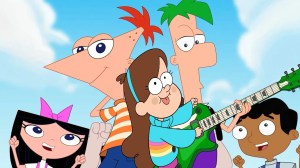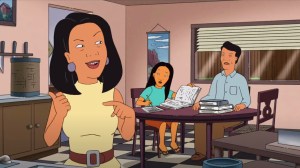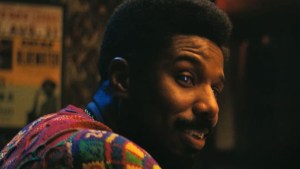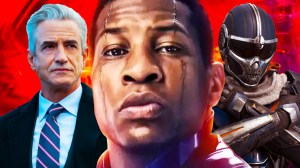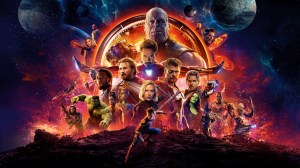One of the coolest and most intimidating tasks that comic book writers can be tasked with is trying to reinvent or revitalize a decades-old piece of intellectual property that is beloved by the fan base and considered borderline perfect by critics.
Videos by ComicBook.com
That is the situation that several writers, including some who have never worked in comics before, find themselves in now, as DC reboots its Sandman universe with Neil Gaiman in a “showrunner” capacity and a slate of talent from inside comics and out reinventing several key books from that world.
One such book is Books of Magic, featuring scripts by best-selling novelist Kat Howard. Earlier this month, ComicBook.com caught up with Howard during New York Comic Con to talk about what to expect going forward.
Books of Magic #1 is available in comic shops and online now.
How did you come to be involved with the Sandman Universe?
The way that I got involved with this originally was actually through DC Vertigo. Molly Mahan, who is my editor on this, sent me an email and was like, ‘Would you ever be interested in possibly writing for comics? Specifically, Vertigo?’
It was one of those moments where I had to sit down even though I was already sitting down, because if you had asked me to make a list of dream projects for my career, writing comics for Vertigo would absolutely have been a top five dream-come-true project. Then, when I found out what it was, I think I cried. It was just so exciting and I love working on this. I’d read Books of Magic before, of course loved it. It’s a huge honor, and it’s also a ton of fun.
When I Google your name, a quote from Neil is the first thing that comes up. Was that before or after this announcement?
Neil and I have been for about a decade now. I went to the Clarion Writers Workshop at the University of San Diego. It’s a six-week writing workshop, 2008. He was one of our instructors. We became friends, and we stayed friends. He’s been super supportive of my writing and really a mentor to me and my career.
So when I actually told him, I was like, ‘I’m gonna do this thing!’ He said, ‘Yes, yes, I know you’re going to do the thing!’ but it was such a great moment to be able to do that, and to talk to him about the story.
Books of Magic is in, kind of, this weird dynamic that they’ve set up, where it’s a reboot/revival where the first one isn’t invalidated by this one happening and kinda/sorta contradciting it, right?
I mean, the easy answer is just don’t think about it. I think, actually, at our story meeting … I think it was actually Neil who was like, ‘Just imagine that there’s a lot of universes living next to each other, and sometimes you sort of step from one into another even though you don’t realize it.’ So they are definitely neighboring universes, so I’m not making huge changes. You’ll very much recognize some of things from the first pages of the first issue. If you’re familiar with the series you’ll be able to say, ‘Oh, this is where this happened. This is where it’s coming from.’ It’s obviously meant to be very accessible for new readers, too. Even if I had to, I wouldn’t want to pretend that that earlier story never happened, so it’s great to be able to pull on that, and at the same time, sort of shift it a little, and the way we think about things.
Is there that moment where you worry about going into the Star Trek: Into Darkness thing, where it’s like, “No, but I really want to do my version of this specific story?”
So far, because I’ve been able to draw from the original Sandman run, as well as from the original Books of Magic run, and so far, it’s been, “Yeah, absolutely. You can do that.” There haven’t been any issues, so hopefully, that will continue.
It was easy because I got a lot of editorial support that was very much sort of, “This is your story, but you get to pick the elements that resonate with you, and that you think will resonate with readers right now.” So there wasn’t a pressure to repeat a specific thing.
There was no, “You must include this character,” or anything like that, you know? So even though it’s an existing universe, titled characters, there’s a lot of freedom in there.
What has it been like to come in for your first comics work and have it be part of this massive group launch?
It’s really great. I love all the creators that I’ve met. They’re people that are doing really great work, and not just the other writers, but the other artists, on some of the other titles, and stuff like that.
Everybody is really excited, really supportive of each other, each other’s work, excited about eachother’s work, and that’s great. That’s such a treat to be part of.
Have you started to think yet about your own ideas that might work, either to adapt from your existing books or to do as comics?
I haven’t quite gotten to the point yet. I’m thinking toward, hopefully, pushing an individual idea, but I haven’t quite solidified what that is yet. Right now, I feel, sort of, the opposite. I feel like I have the safety net of the pre-existing storyline, and this world that is there, and I know the world works, and I know people respond to the characters.
How is it getting used to the serialized format, where you have to have a cliffhanger every 20 pages?
Actually, I really liked that. A lot of times, I’ll write backwards. I’ll know what my final page is going to be, and then think, “Okay, how of I get there?” So it’s actually been a slightly easier way for me to plot things than normal, so that’s great.


